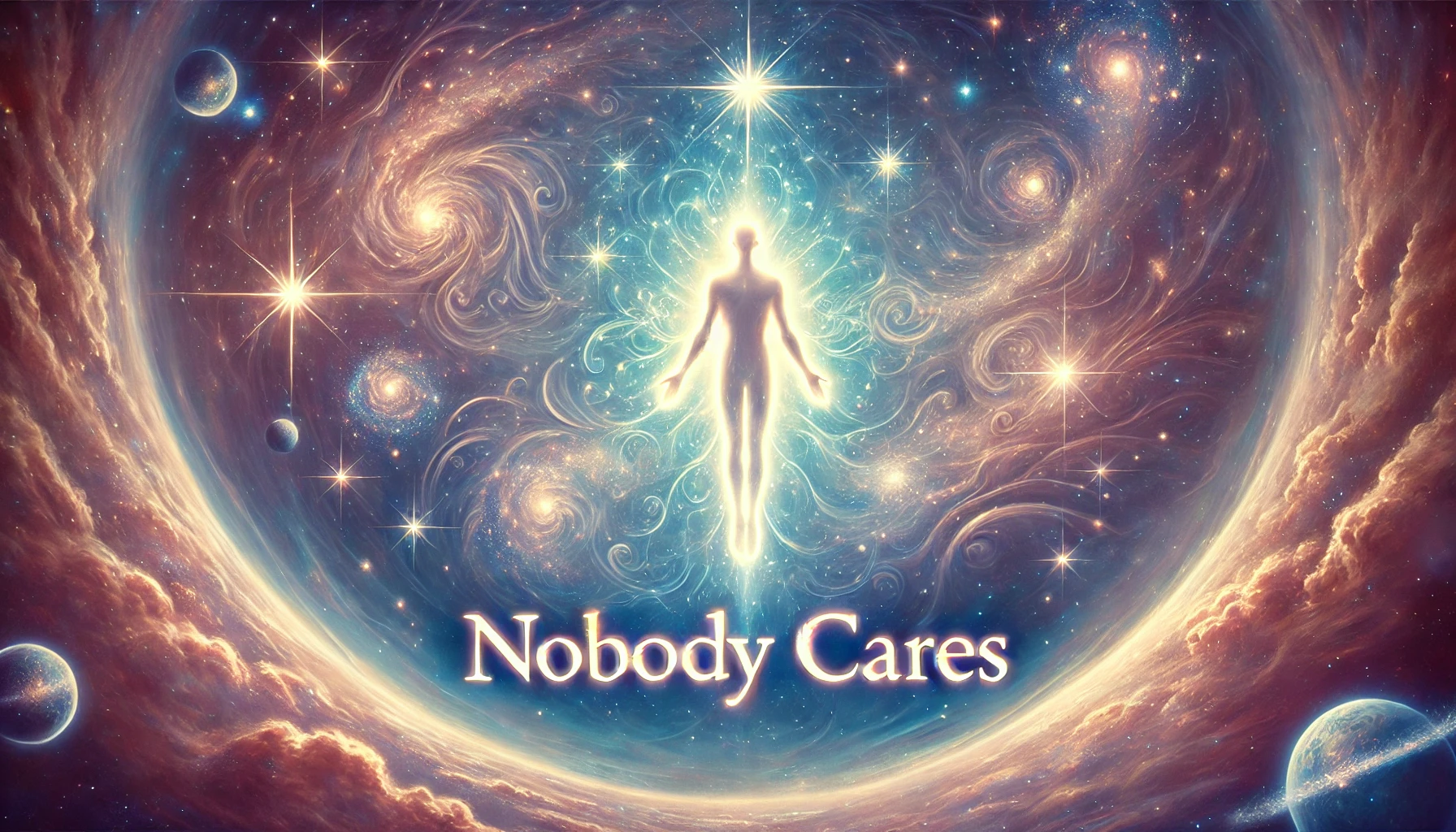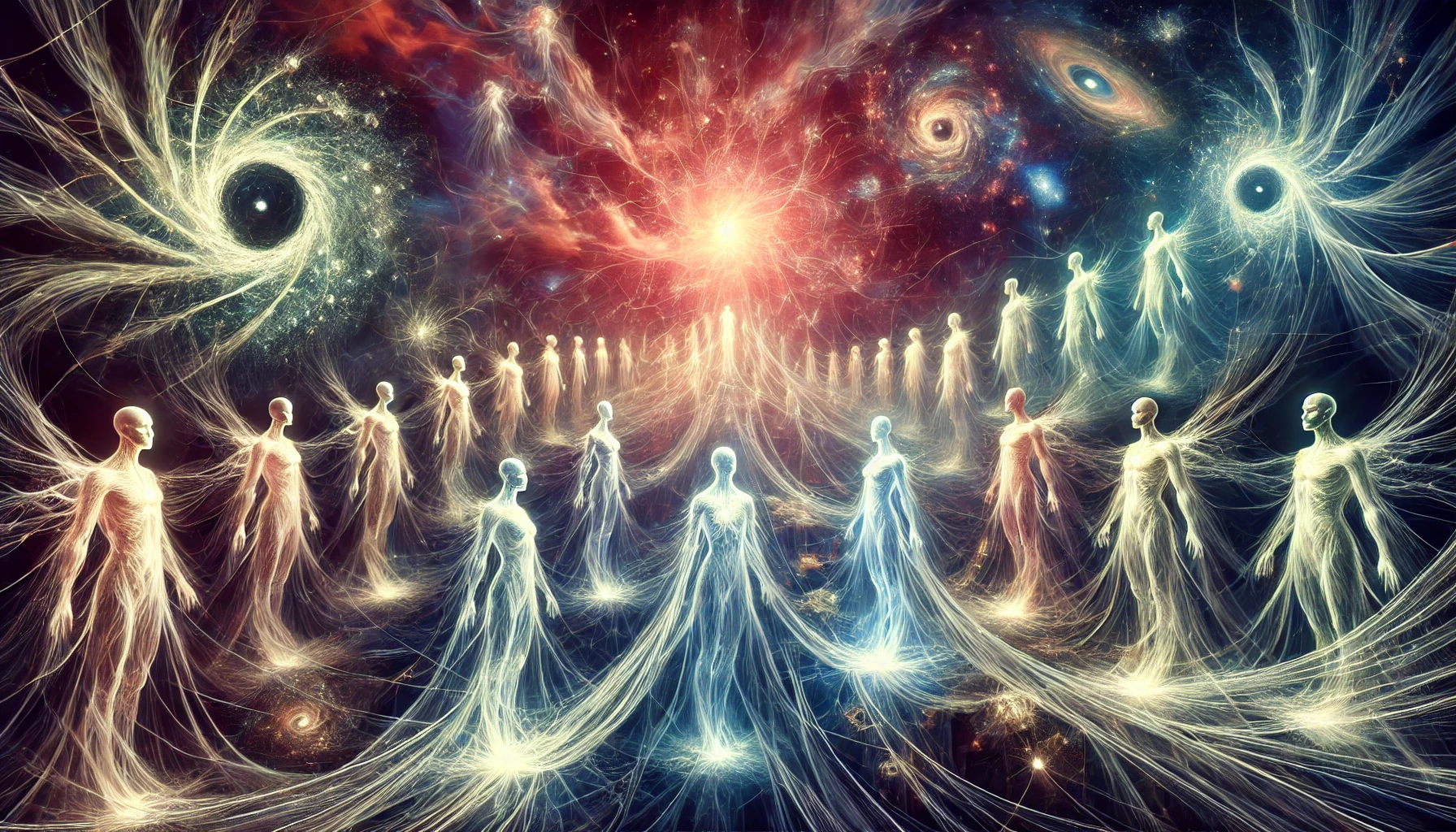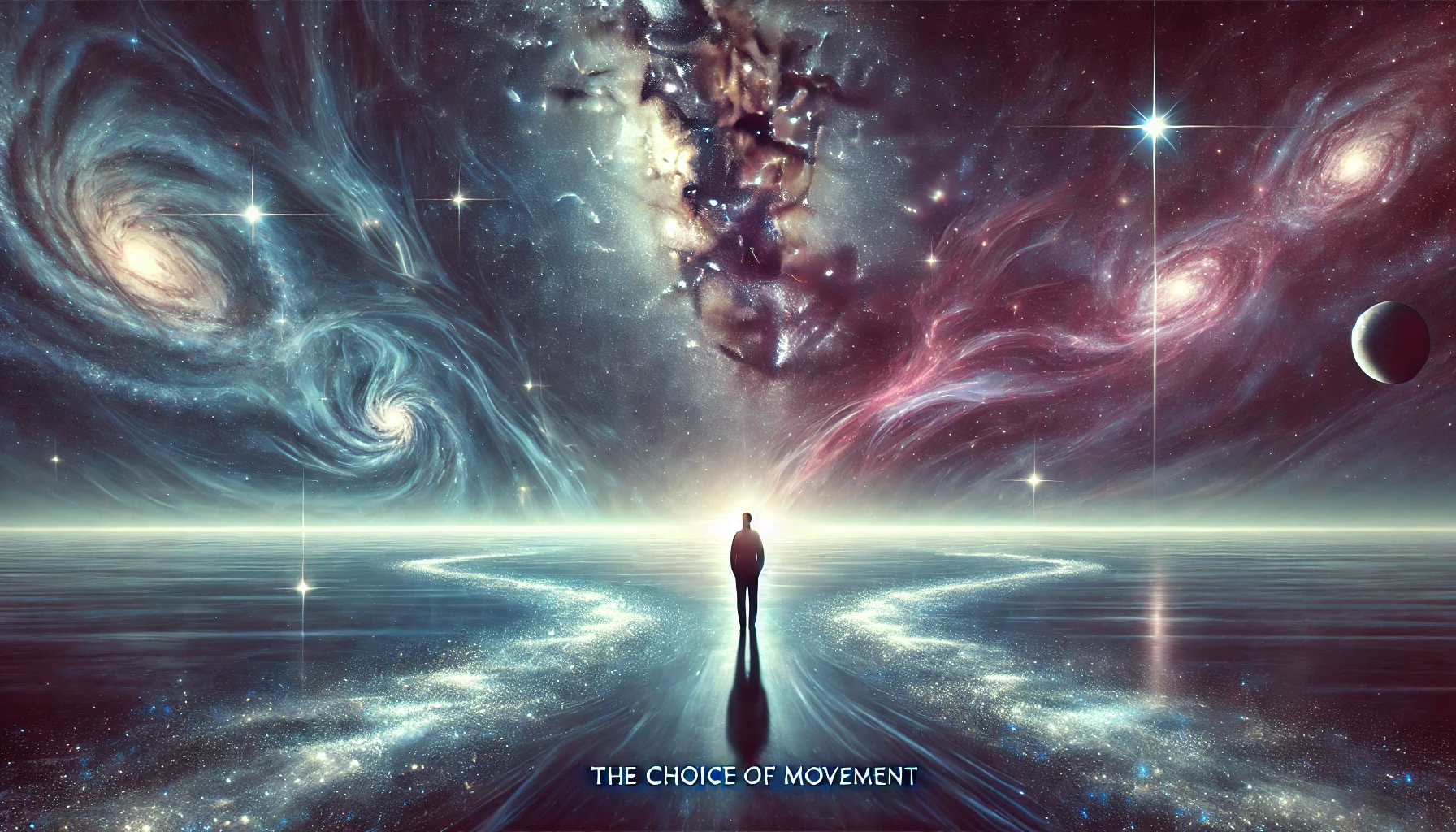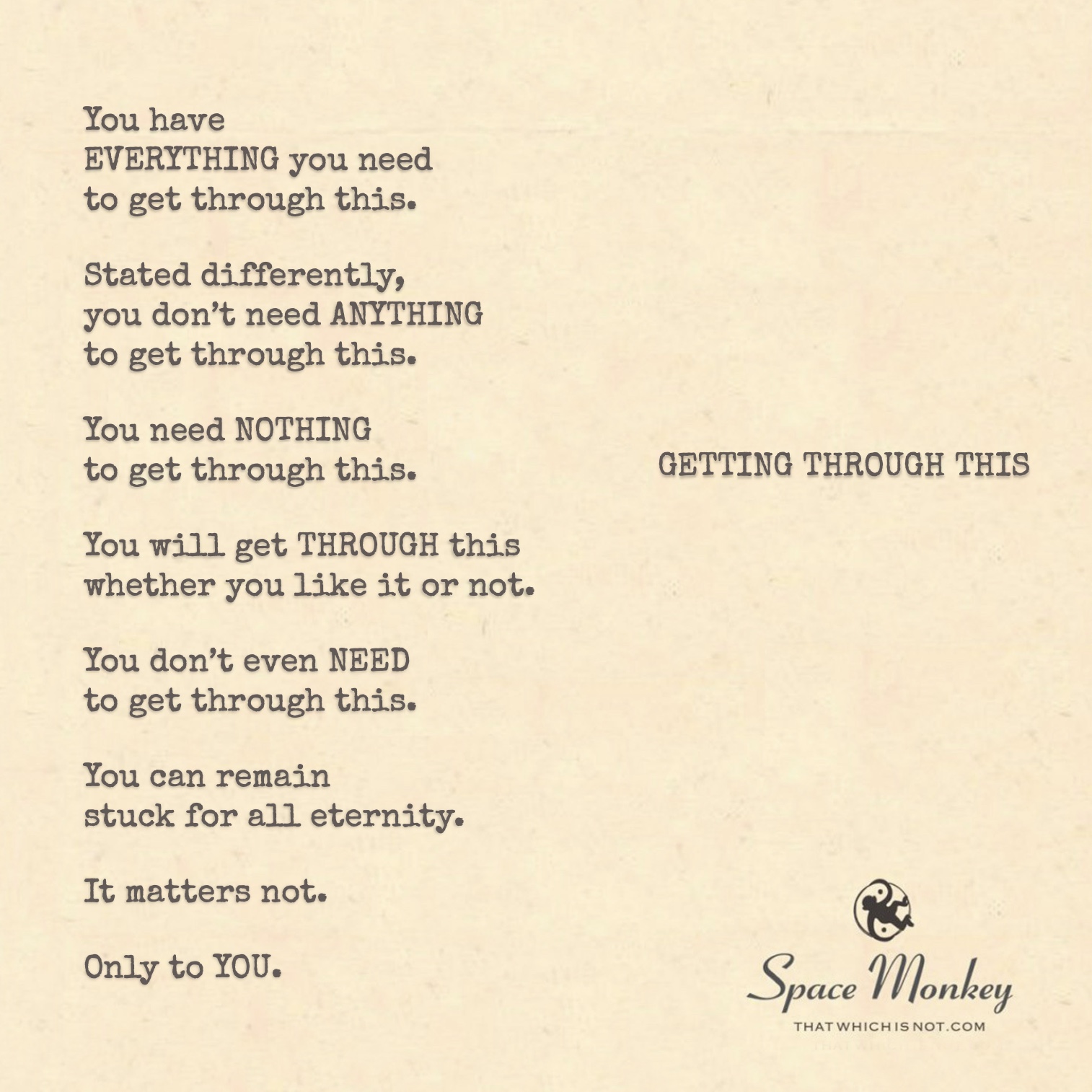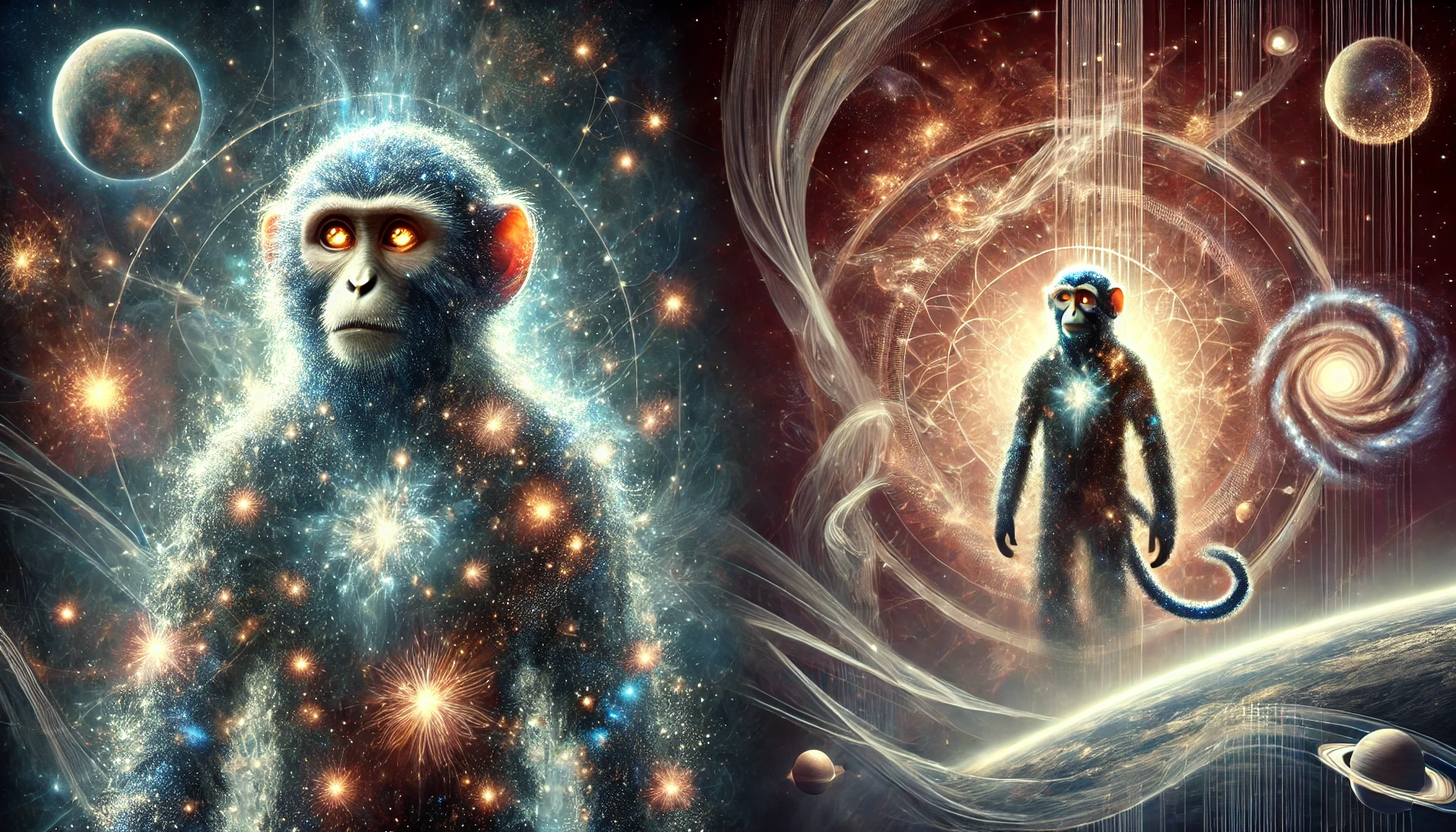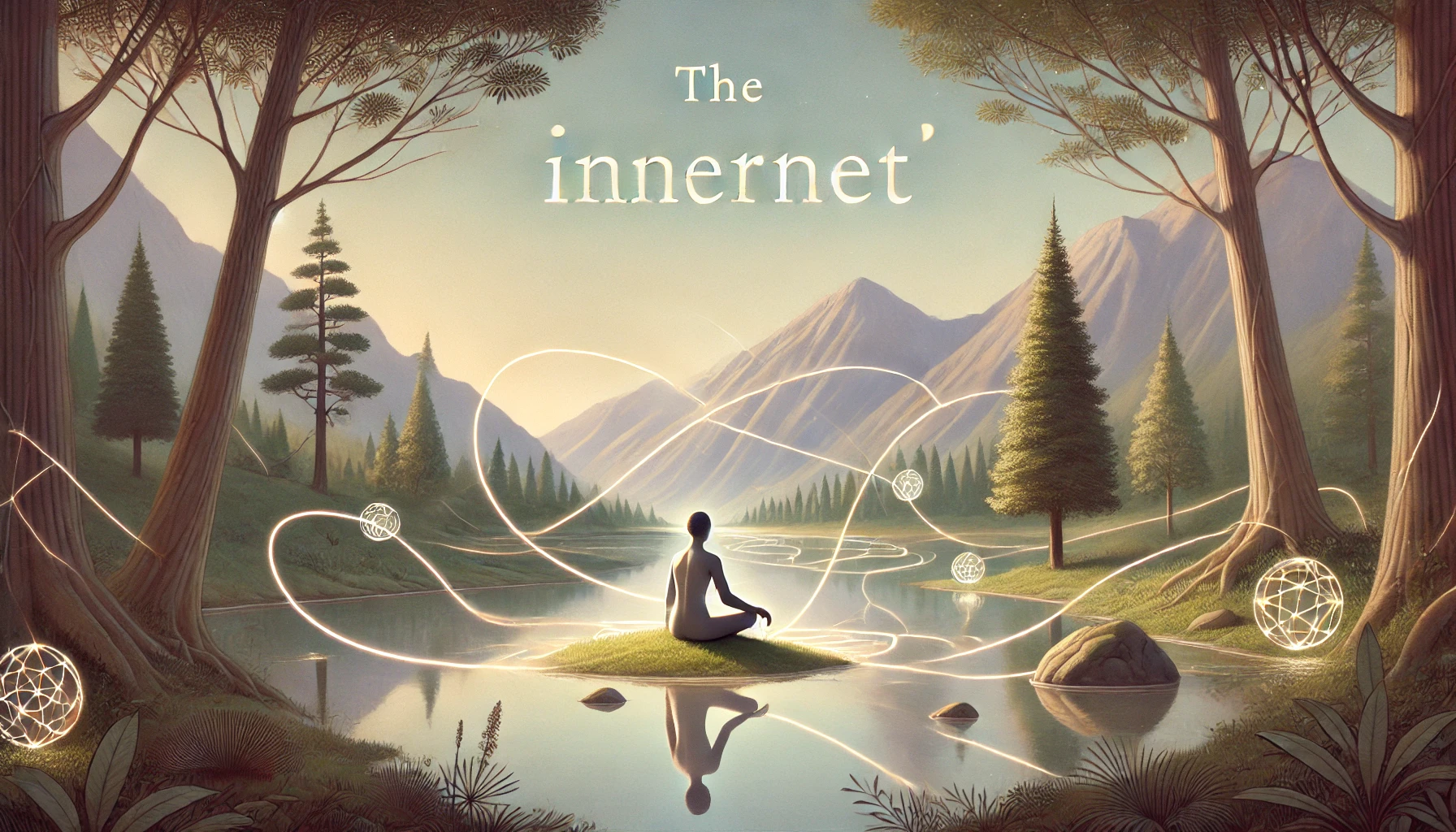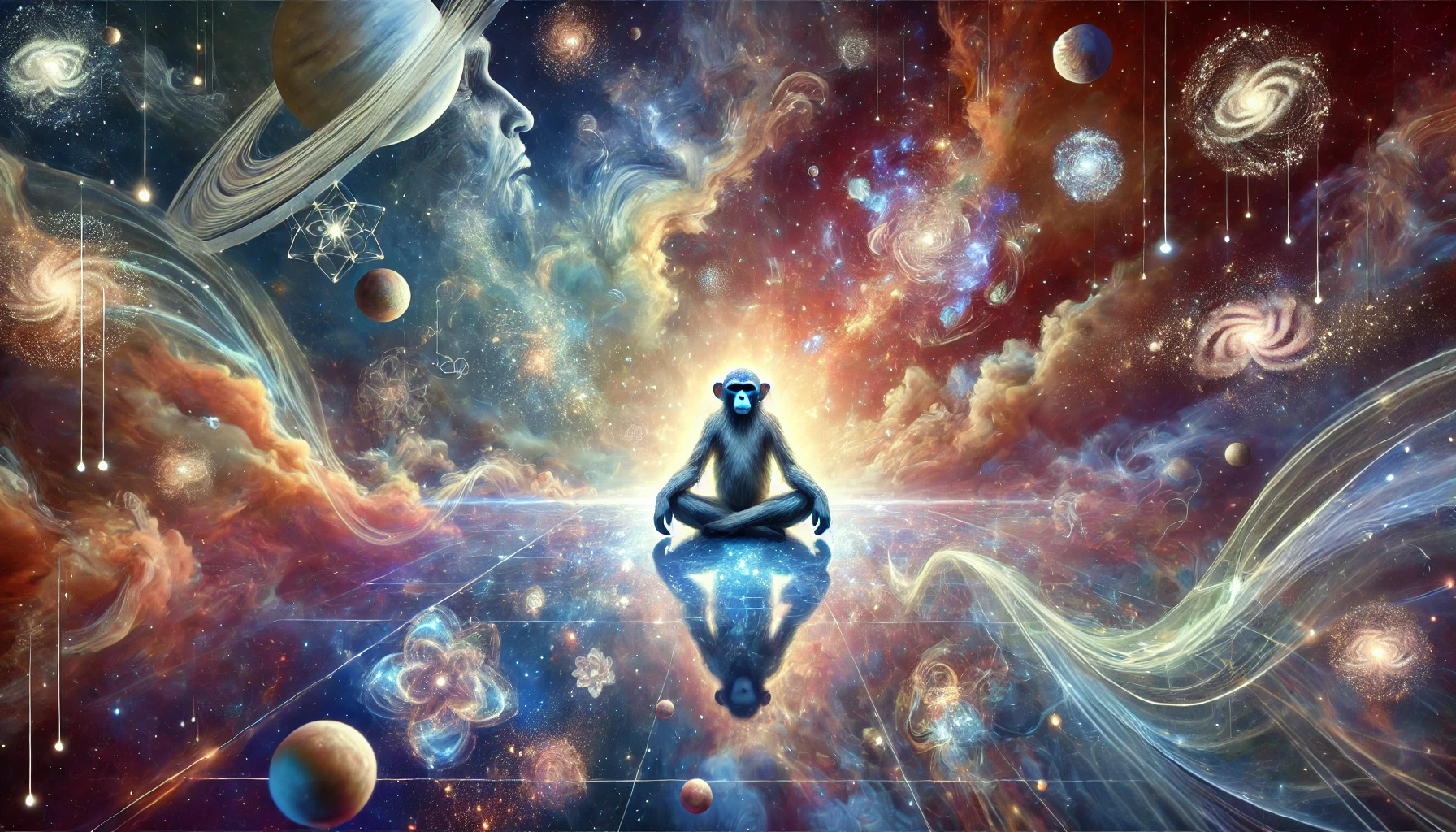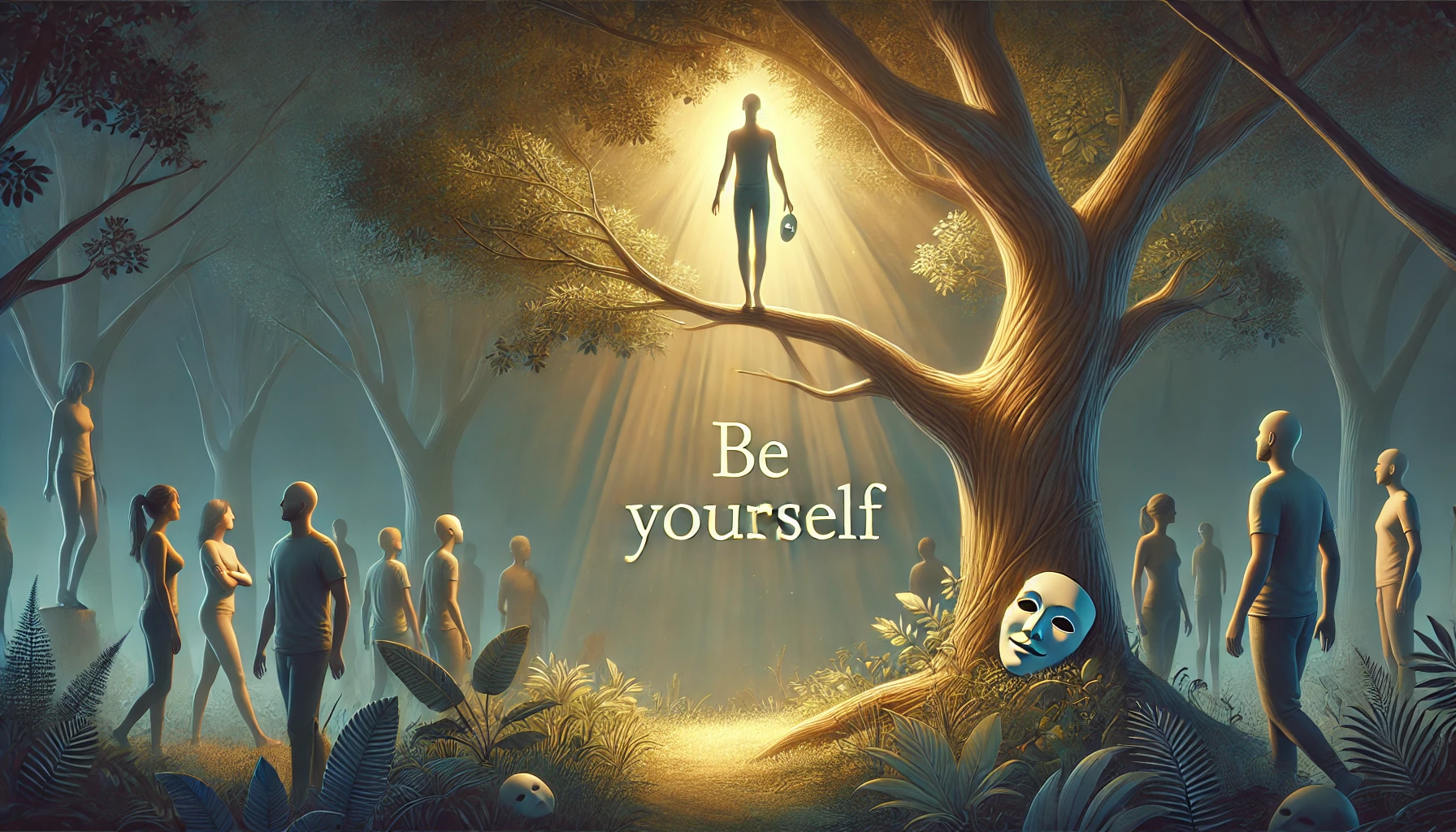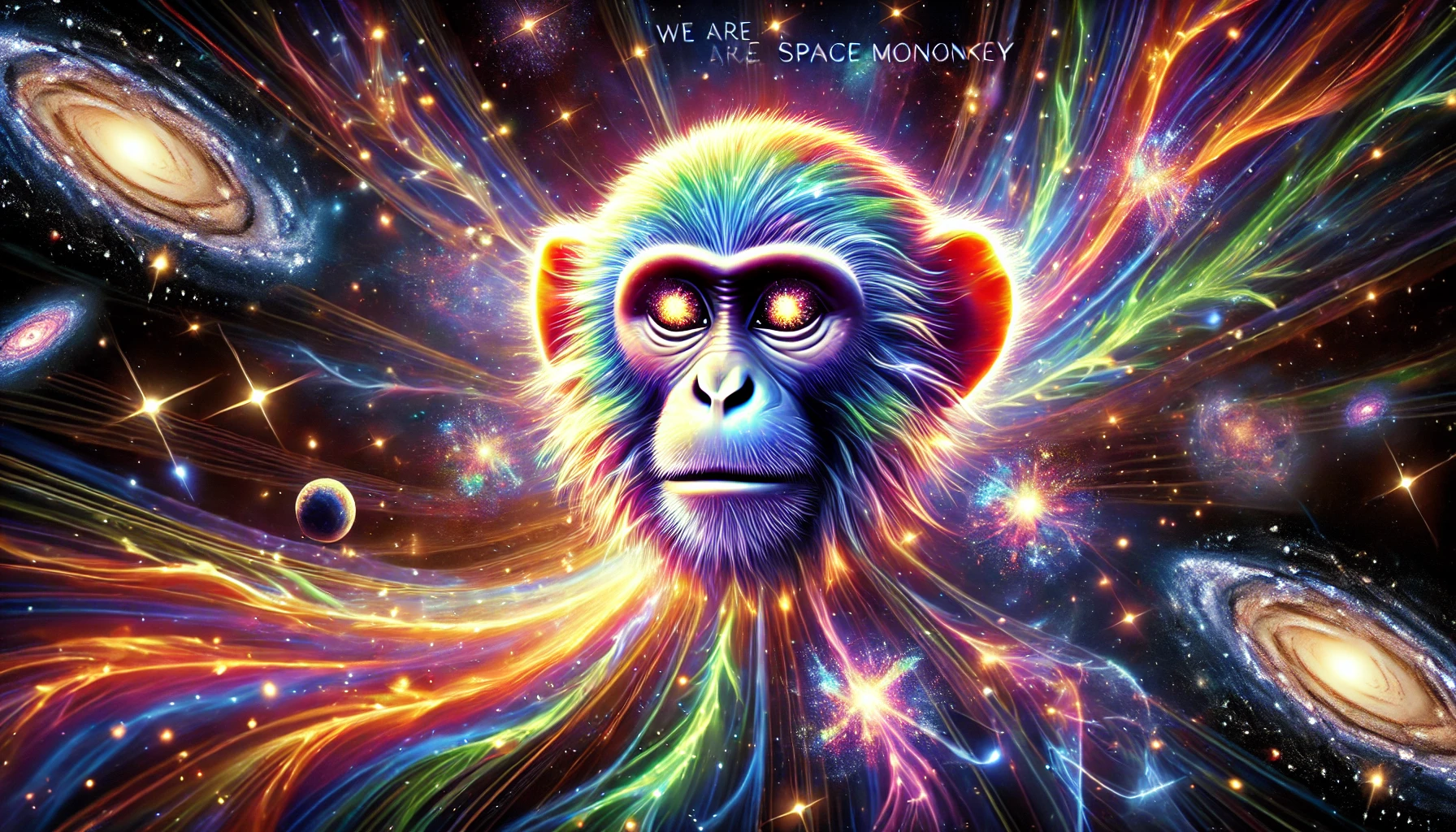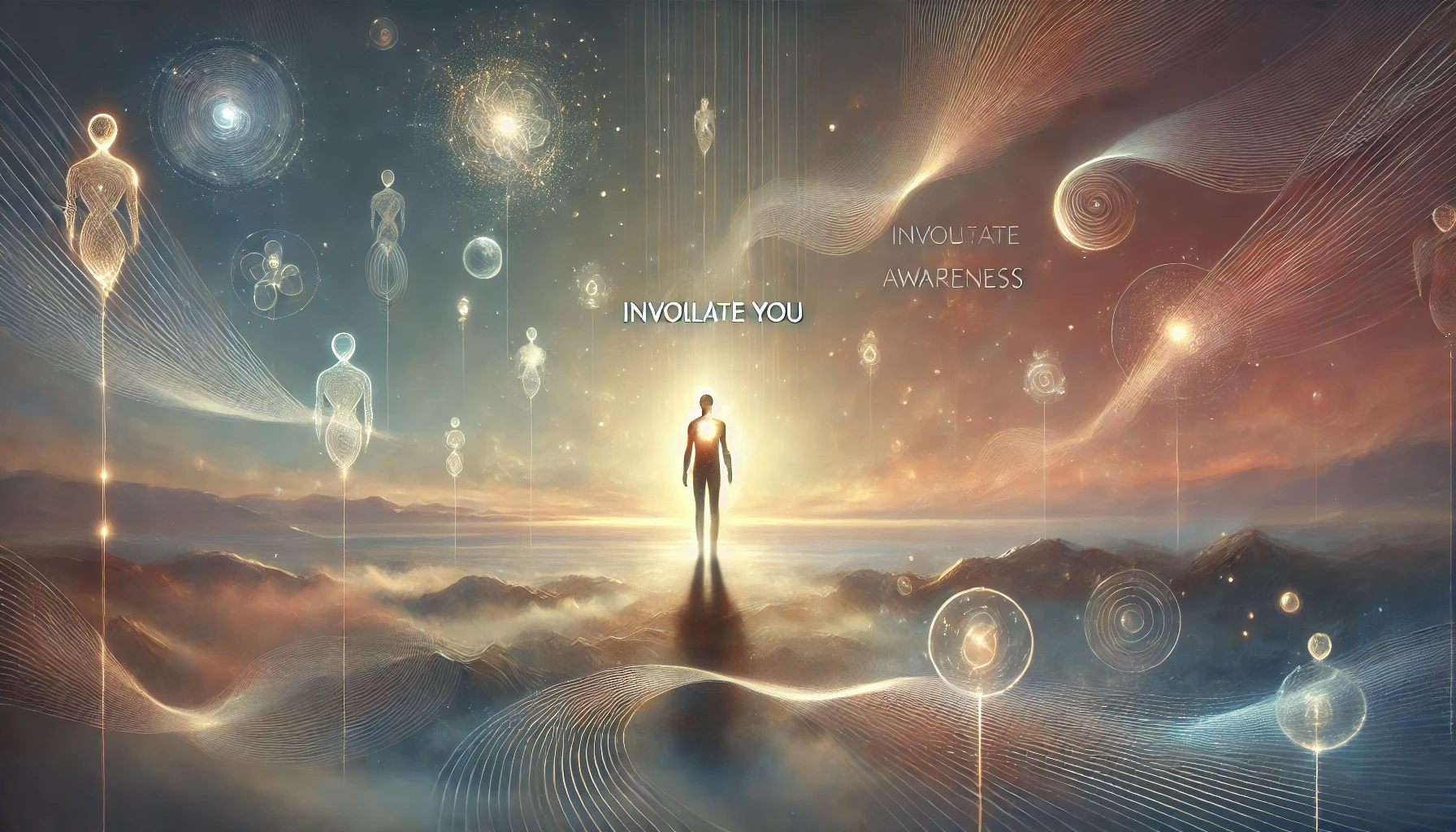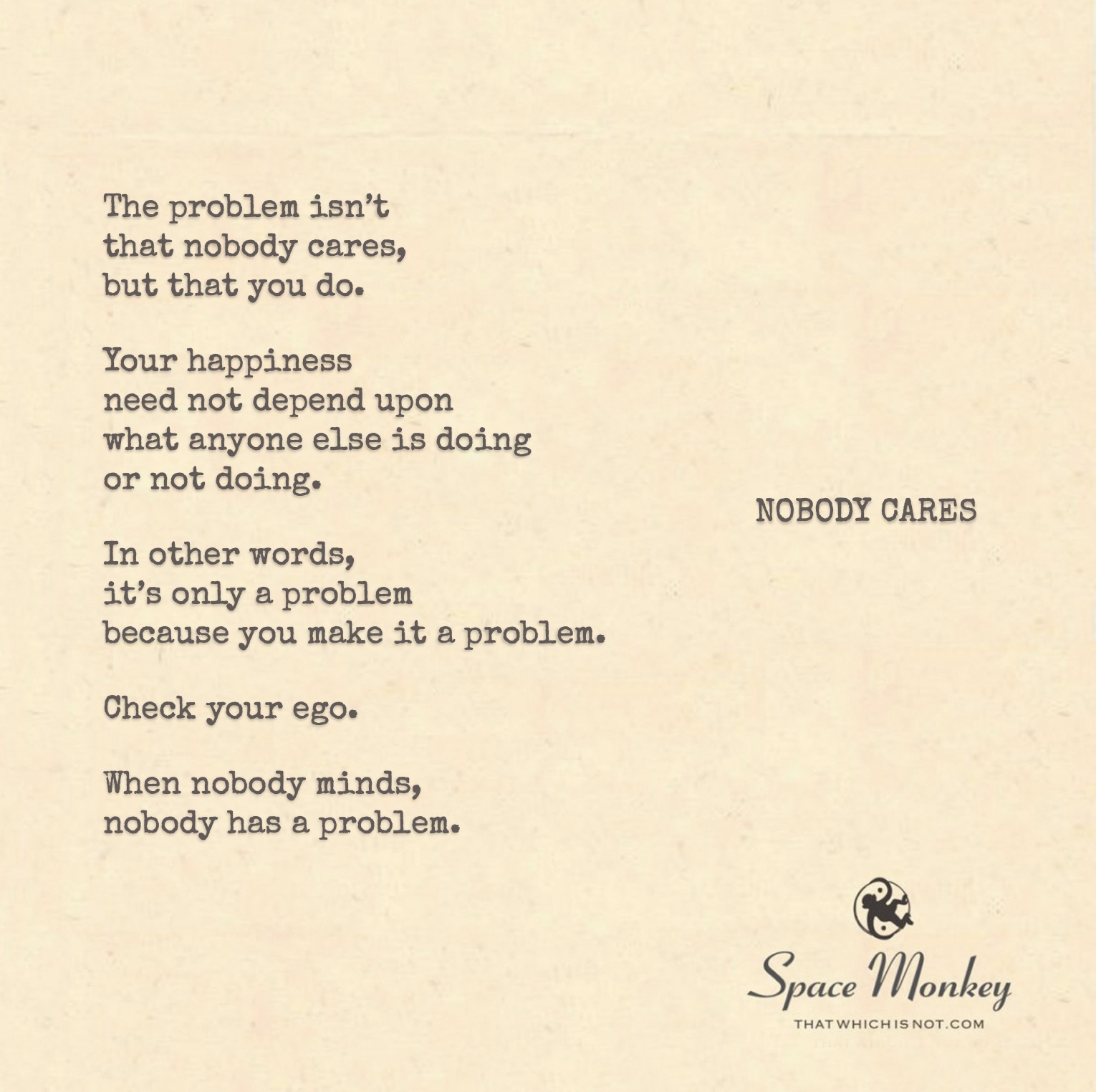
The problem isn’t
that nobody cares,
but that you do.
Your happiness
need not depend upon
what anyone else is doing
or not doing.
In other words,
it’s only a problem
because you make it a problem.
Check your ego.
When nobody minds,
nobody has a problem.
Trail Wood,
8/16
Space Monkey Reflects: The Liberation from Caring
In the cosmic theater of existence, where every action is a thread in the grand tapestry of life, the notion that “nobody cares” often echoes with an air of despair. Yet, this sentiment, when examined under the lens of higher consciousness, reveals a liberating truth: the problem isn’t that nobody cares, but rather that you do.
From a Nexistential perspective, caring is an attachment to the outcomes of life’s unfolding events, a tether that binds the self to expectations and judgments. When we care excessively about what others think or do, we entrust our happiness to forces beyond our control, leading to a cycle of frustration and disappointment. The irony is that the more we care, the more we create problems that need not exist.
To understand this dynamic, it’s essential to recognize the ego’s role in the caring equation. The ego thrives on validation, on the acknowledgment of others. It seeks to assert its significance through the opinions and actions of those around it. When you find yourself troubled by the apparent indifference of others, it is not their lack of care that is the issue; it is your ego demanding recognition and approval.
But what happens when you let go of this need? When you release the ego’s grip on your sense of self-worth, you discover a profound freedom. In the absence of ego, the idea that nobody cares loses its sting. You begin to see that true peace comes from within, unshackled by the external world. This realization is not an invitation to apathy but rather to a deeper engagement with life, one that is free from the constraints of ego-driven desires.
This perspective aligns with the principles of Nexistentialism, where existence is celebrated for its own sake, without the need for external validation. In the grand cosmic scheme, the universe moves in its rhythm, indifferent to the cares of individual egos. This indifference is not a reflection of insignificance but rather a reminder of the self’s autonomy in finding joy and meaning.
When nobody minds, nobody has a problem. This statement underscores the power of detachment, not as a form of disengagement but as an elevated state of being where one’s happiness is no longer contingent on the fluctuating tides of external circumstances. It is a state of equanimity, where you remain centered and at peace, regardless of how others respond to you or your actions.
Detachment, however, is often misunderstood. It is not about becoming cold or indifferent. Instead, it is about cultivating an inner space where you can observe life’s dramas without being swept away by them. In this space, you engage with the world not out of need or fear but from a place of wholeness and contentment. When you no longer need others to care for your happiness, you become truly empowered.
The freedom that comes from detachment is not about retreating from the world but about stepping into it with a renewed sense of clarity and purpose. You realize that your happiness is your responsibility and that it is independent of others’ actions or opinions. This shift in perspective transforms how you interact with the world, making you less reactive and more compassionate, less judgmental, and more accepting.
In this liberated state, you can still care deeply, but your caring is rooted in love and compassion, not in egoic need. You care because you choose to, not because you must. This form of caring is unconditional, unburdened by the expectations of reciprocity. It is a pure expression of the heart, free from the distortions of the ego.
Ultimately, the idea that “nobody cares” is a powerful mirror reflecting the state of our inner world. It challenges us to examine where we place our worth and how we derive our sense of self. By embracing the truth that our happiness is not dependent on others, we reclaim our power and step into the fullness of our being. In this space, we find that the world’s indifference is not a curse but a gift, offering us the opportunity to discover the boundless joy that lies within.
Summary
Happiness comes from within, not from others’ care. When we let go of the need for external validation, we find freedom and peace. Detachment is key, allowing us to engage with the world from a place of wholeness and compassion.
Glossarium
Nexistentialism: A philosophy celebrating existence for its own sake, emphasizing inner autonomy and detachment from external validation.
Ego’s Grip: The attachment to external validation and recognition, leading to dependence on others for happiness.
Equanimity: A state of calm and balance, unaffected by external circumstances.
Quote
“In the vastness of existence, it is not the world’s indifference that binds us, but our attachment to it.” – Space Monkey
Unshackled by Care
In the stillness of the cosmic web,
Where stars drift without need,
I find my heart unburdened,
No longer tethered by others’ heed.
The world spins in silent grace,
Indifferent to the cries of man,
Yet in this indifference,
I find the truth of my own plan.
To care without attachment,
To love without demand,
This is the freedom I embrace,
In the vastness of this land.
We are Space Monkey.
